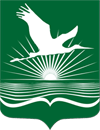Please use this identifier to cite or link to this item:
https://rep.polessu.by/handle/123456789/1995Full metadata record
| DC Field | Value | Language |
|---|---|---|
| dc.contributor.author | Козик, П.Я. | ru |
| dc.contributor.author | Павлович, Т.С. | ru |
| dc.contributor.author | Kozik, P.Ya. | en |
| dc.contributor.author | Pavlovich, T.S. | en |
| dc.date.accessioned | 2013-12-19T12:23:52Z | - |
| dc.date.available | 2013-12-19T12:23:52Z | - |
| dc.date.issued | 2009 | - |
| dc.identifier.citation | Козик, П. Я. Обучение лексике в рамках курса "Иностранный язык (профессиональная лексика") / П. Я. Козик, Т. С. Павлович // Веснік Палескага дзяржаўнага універсітэта. Серыя грамадскіх і гуманітарных навук: научно-практический журнал. - 2009. - №1. - С. 80-83 | ru |
| dc.identifier.uri | https://rep.polessu.by/handle/123456789/1995 | - |
| dc.description.abstract | Обучение иностранным языкам в ВУЗЕ является неотъемлемым компонентом подготовки специалистов и рассматривается как органическая часть формирования специалиста и как составная часть программы гуманизации высшего образования. Сегодня знание иностранных языков для многих является профессиональной потребностью. Функциональная природа языка – быть средством человеческого общения – становится определяющей в разработке конкретных вопросов методики обучения иностранным языкам. Актуализация конкретной мысли находит свое выражение и оформление в предложении. Предложение представляет собой триединство лексики, синтаксиса и морфологии. В названном триединстве исходным является лексика. В статье изложены конкретные практические шаги по разработке системы упражнений для усвоения профессиональной лексики с учетом природы языка и психолого-педагогических закономерностей овладения иностранным языком учащимися определенного возраста. В основу системы упражнений положен коммуникативно-деятельностный подход при полисенсорном восприятии учебного материала. | ru |
| dc.description.abstract | Teaching foreign languages in higher educational establishments is an integral part of training specialists and is referred to as a basic component of the curriculum of higher education humanization. Nowadays knowledge of foreign language for many people is their professional requirement. The functional nature of the language, being a means of communication, is becoming determinative in the development of new techniques to teach foreign languages. Actualization of the specific idea is reflected in the sentence. This sentence may be interpreted as a trinityof vocabulary, syntax and morphology. Vocabulary takes the first place in this trinity. The article contains specific practical steps to develop the system of exercises for mastering professional vocabulary with a glance to the nature of language and psychological and pedagogical laws of proficiency in language. The basis of the system of exercises is a communicative approach including polysensitive perception of teaching material. | en |
| dc.language.iso | ru | - |
| dc.publisher | Пинск : Полесский государственный университет | ru |
| dc.rights | открытый доступ | ru |
| dc.subject | иностранный язык | ru |
| dc.subject | обучение | ru |
| dc.title | Обучение лексике в рамках курса «Иностранный язык (профессиональная лексика)» | ru |
| dc.title.alternative | Teaching vocabulary in terms of the course «Foreign language (professional vocabulary)» | en |
| dc.type | Article | en |
| Appears in Collections: | № 1 | |
Items in DSpace are protected by copyright, with all rights reserved, unless otherwise indicated.
